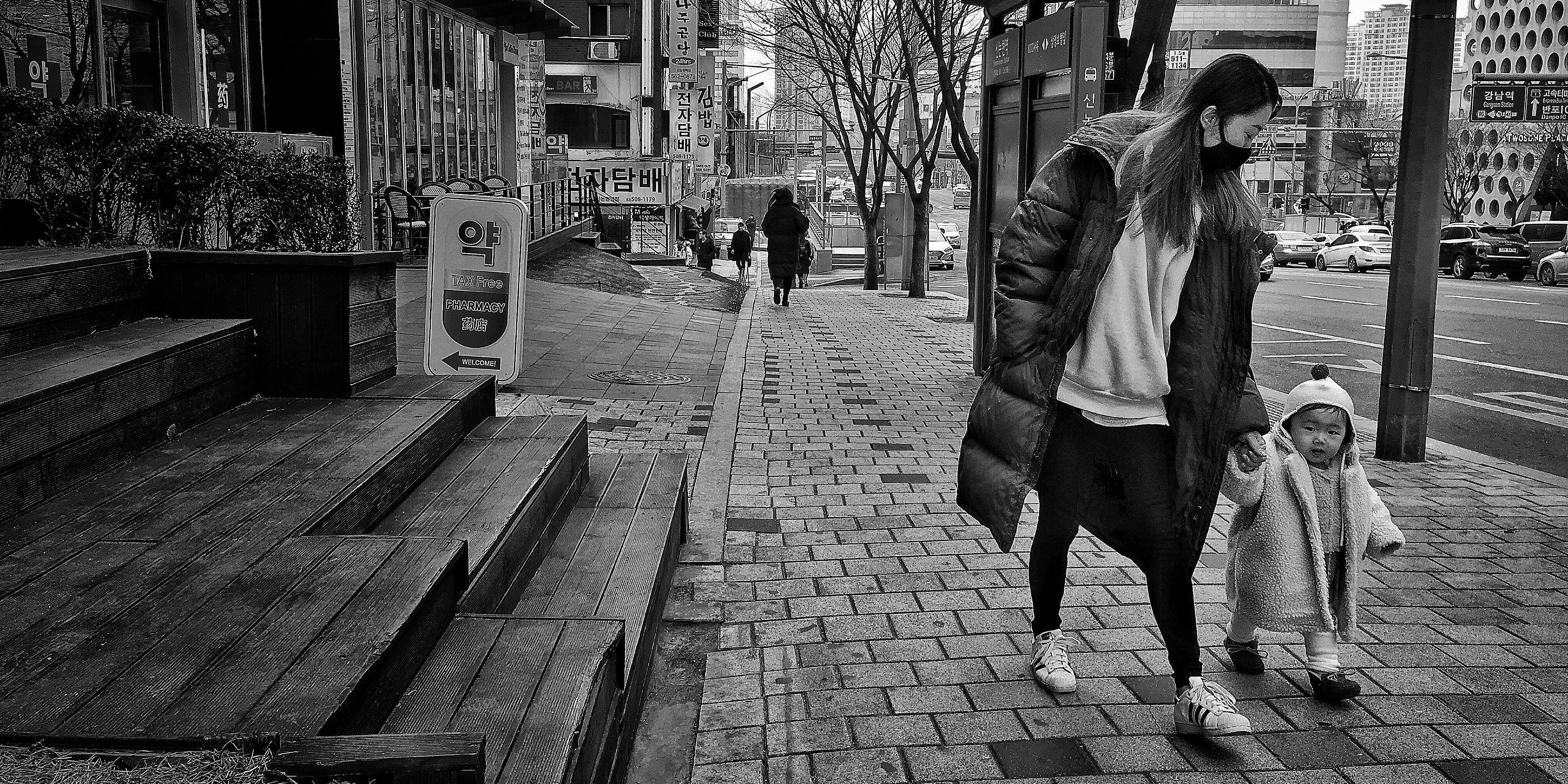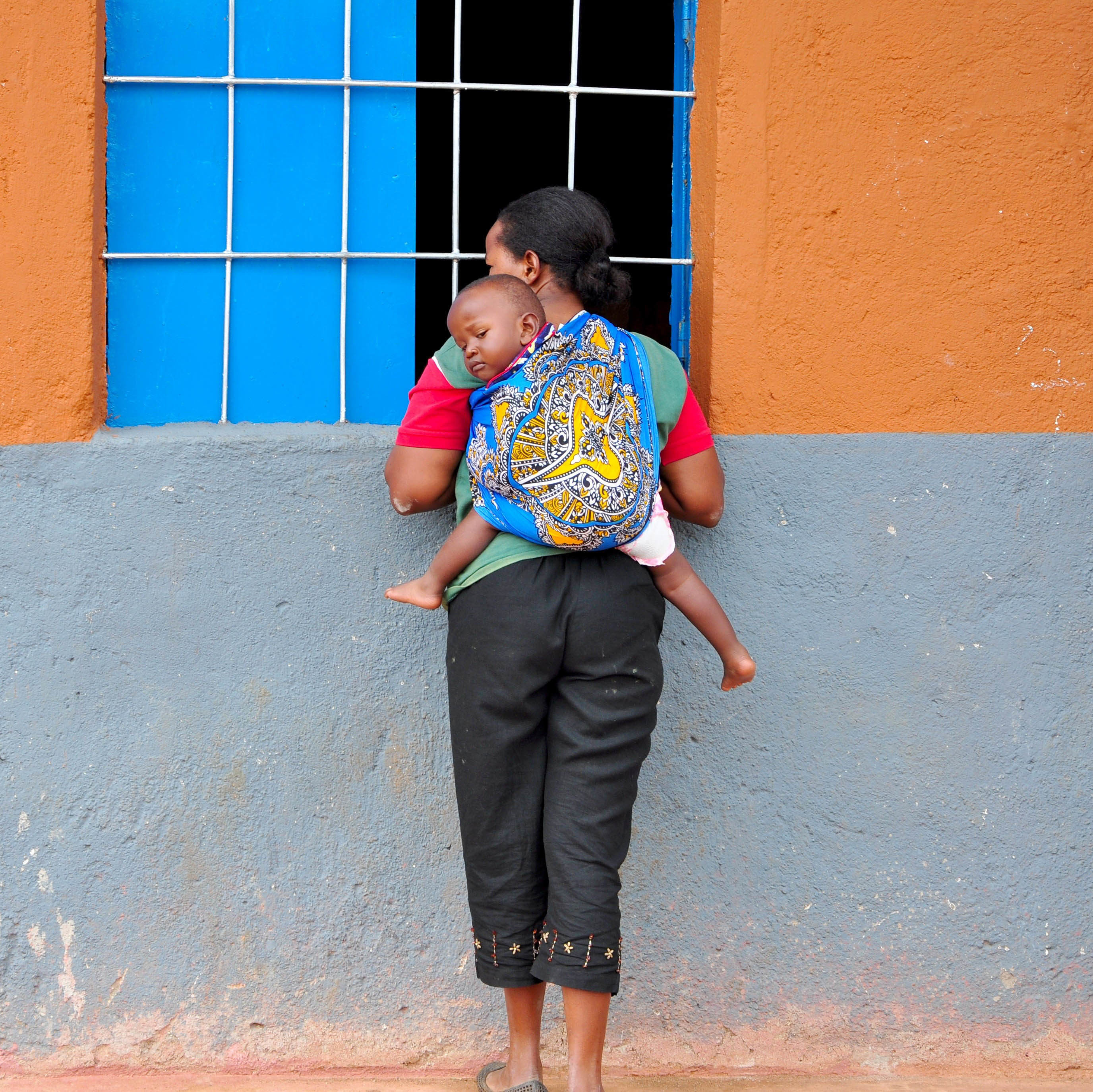 by Julien Vincelot and Patrin Watanatada, Bernard van Leer Foundation
by Julien Vincelot and Patrin Watanatada, Bernard van Leer Foundation
If you were in Los Angeles one morning last September, you might have noticed small groups of adults making their way downtown on foot while pushing empty strollers or carrying bags of rice as heavy as an 18-month-old child. These men and women had come from Amsterdam, California, Dakar, London, Madrid, New York City, Shenzhen, Tel Aviv, and other cities to contribute their expertise to an Urban95 meeting on urban transport for families, hosted by the Bernard van Leer Foundation. Urban95 asks city leaders, planners, designers, and engineers: “If you could experience the city from 95 cm—the height of a three year old— what would you change?”
Babies and toddlers deserve a good start in life, and the best way to achieve that is to support the people who care for them. So, what does this have to do with transportation?
Urban Transportation and the Developing Brain
Between conception and age three, the brain is developing rapidly and is more sensitive to external experiences and inputs—both negative and positive—than at any other time in life. These experiences set the foundation for health and learning in later childhood and into adulthood. And they are powerfully influenced by the mothers, fathers, uncles, aunts, grandparents, siblings, friends, and professionals who care for them. These primary caregivers not only influence the quality of food, play, and healthcare but they also provide warm, responsive human interactions that the developing brain depends on to build neural connections.
Urban transportation can affect the quality of the experiences that shape the developing brain— for good and for bad. It affects access to healthy food, healthcare, childcare, and other key early childhood services. The quality of transportation and planning affects the extent to which pregnant women, babies, and toddlers can access the services they need for healthy development: sources of healthy food, well-baby clinics, and other primary healthcare, childcare, parks, and play spaces.
It can cause stress for caregivers. Traveling in the city can be tiring, long, stressful, or dangerous for caregivers, which affects the quality and amount of responsive care they can provide.
It can pollute the air. For children under five, the top two causes of death are preterm birth complications and lower respiratory illnesses. In urban areas, air pollution from vehicles is a significant contributor to both. What’s more, the damage air pollution causes to still-maturing brains and lungs—asthma, cancer, cognitive impairment, and reduced lung functioning—can last a lifetime.
How City Planners and Transport Agencies Can Build Healthy Brains
Better walking and cycling infrastructure, widespread, affordable and safe public transportation, and low-emission zones benefit every urban dweller, including babies, toddlers, and the people who care for them. But until these exist throughout every city, we encourage cities to prioritize the health of their youngest residents and the adults they will become by considering the following:
- 20-minute (or less) neighborhoods for babies. City planning for the needs of pregnant women, babies, and toddlers starts with understanding where they live and where they need to go. Shortening distances to key early childhood services is one of the best things a city can do for the healthy development of its babies and toddlers. Researchers at Turkey’s Kadir Has University and the TESEV thinktank have produced Istanbul’s first map of children under five by income level, and some of its municipalities are beginning to use the map to plan home visits and public spaces. In Tel Aviv, Israel, the departments of Community, Culture & Sports and Social Services are collaborating to share physical facilities to locate early childhood services closer to families. This is being piloted in five community centers with the goal to allow parents to walk to well-baby clinics.
Caregivers have different travel patterns than daily home-to-work commuters.
Measures that accommodate the needs of caregivers traveling with small children could include universal transit cards or timebased systems that allow passengers to transfer without needing to pay again, predictable schedules that make it easier to plan multi-leg journeys and reduce waiting times, and measures to make public transportation and sidewalks safer from harassment and violence, as well as more accessible for strollers or people juggling packages and children. Recife, Brazil—which approved a city-wide early childhood policy earlier this year—is upgrading streets, sidewalks, and stairs near the Compaz Centres, its flagship network of community centers providing services to families and adolescents. São Paulo, Brazil, has provided pregnant women with vouchers for free transportation to travel to prenatal appointments. Meanwhile, Santiago, Chile, is experimenting with anonymized mobile phone data to better understand how women move through the city.
- Plan for the types of journeys made by caregivers— especially women. Planning mobility for children under five is largely about planning for the people they travel with. In many cities, this is still mostly women. Journeys made by caregivers tend to involve many stops to run errands and tend to the needs of the child, and often take place at off-peak times, compared to journeys made by people who are mostly traveling between home and work. Yet transport planners tend not to recognize “trips made while caring for others” as a distinct category. University of Madrid professor Inés Sánchez de Madariaga is working to change that through her work on “the mobility of care.”
- Prioritize the routes and destinations most important to babies, toddlers, and the people who care for them. It’s overwhelming to think of improving every street and sidewalk in a city. Boa Vista, Brazil is working to identify the routes taken by families to early childhood services to make them safer. The city is also working with older children to use GPS to define the routes they take from home to school and other destinations. Andres Sevtsuk at the Harvard Graduate School of Design uses probability analysis to prioritize the routes most likely to be taken by people trying to reach a given set of destinations and has applied this technique to the routes that small children take to reach playgrounds in Cambridge, Massachusetts.
- Design child-friendly streets. For babies and toddlers, safer roads mean both traffic safety and reducing air pollution. The Global Designing Cities Initiative is working on a Streets for Kids supplement to its Global Street Design Guide that provides technical guidance on designing streets that serve both as safer transport corridors and spaces for vibrant public life. Bogotá, Colombia is piloting some of these techniques for colorful pedestrian routes and traffic calming paint jobs in its Children’s Priority Zone. In Barranquilla, Colombia, two grownups for every two dozen children lead “walking buses” along pre-established routes to keep preschoolers and older children safe on their journeys to school.
- Create walkable cities. There are dozens of reasons to make a city more walkable. For babies, toddlers, and their caregivers, not only is walking good exercise and free—it is predictable, reducing stress on already stressed caregivers. And at its best, walking through city streets creates a stream of interesting sights, sounds, and people for small children to experience.
- Make travel fun. City dwellers can spend hours a day in transit. Some recent projects to turn travel into moments for learning and love include Urban Thinkscape’s work to convert a Philadelphia bus stop and the vacant lot next to it into science-based early learning spaces; ImagiNation Afrika’s work in Dakar, Senegal, to promote play between parents and children on buses; and the Boston Basics-inspired project in São Paulo, Brazil, to post billboard messages to encourage caregivers to talk, sing, and play with small children.
- Finally, regulate cars in places where small children spend the most time. Cities around the world from Paris to Jakarta have established or are considering partial or even permanent bans on cars in the city center, to reduce congestion, improve air quality, and make room for a growing population. We’d like to see this near places where babies and toddlers spend the most time, like the play streets near schools and in neighborhoods filled with families in Los Angeles, Bogotá, London, and Libreville (to name just a few).
The Bernard Van Leer Foundation: Investing in better mobility for babies, toddlers, and the people who care for them is one of the best investments a city can make—for now and for the future.
This article is from the 30th edition of the Sustainable Transport magazine.
Read the rest of the issue here.


